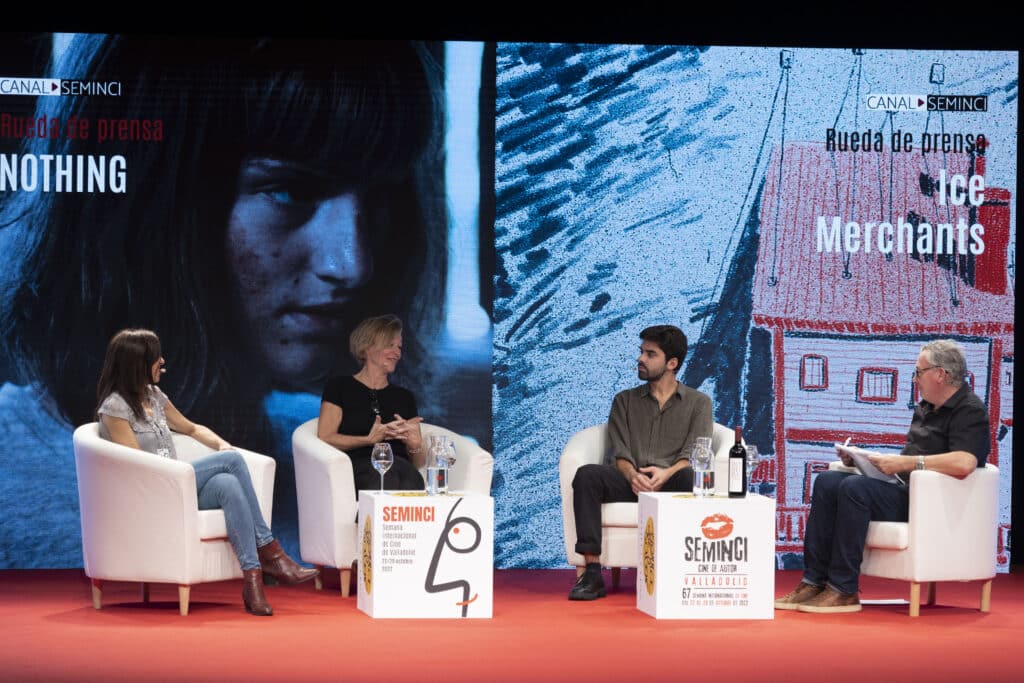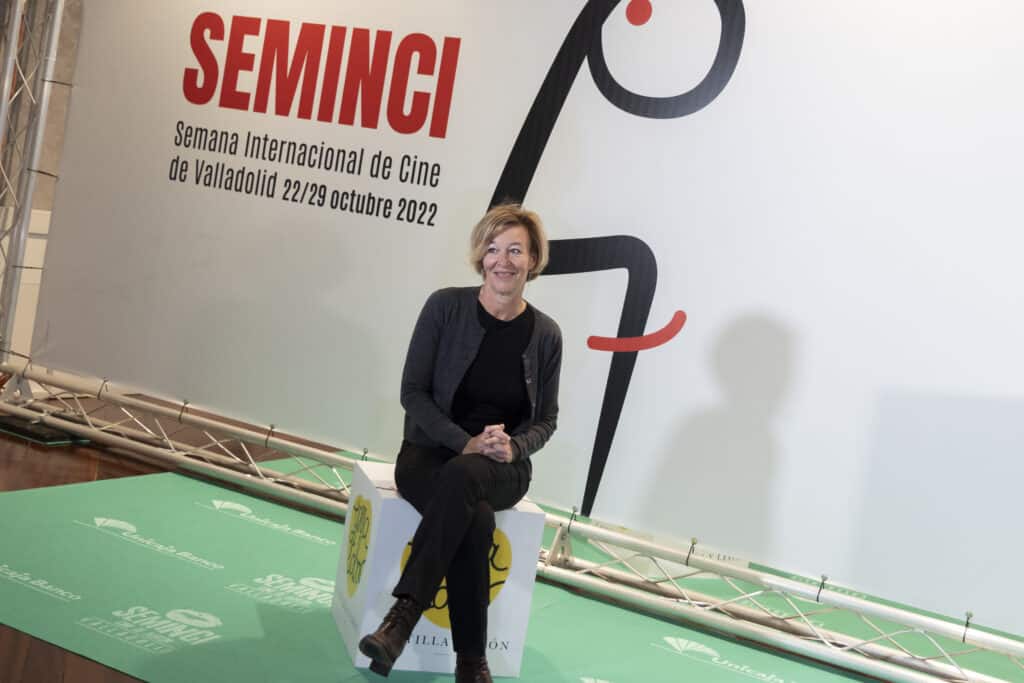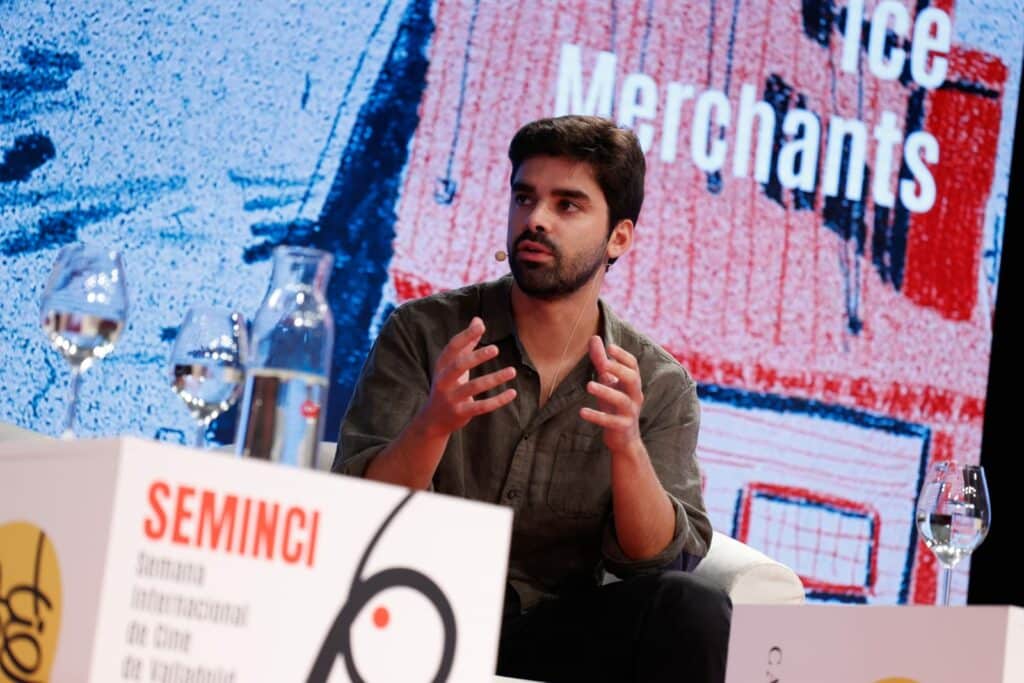The co-director of Nothing based her feature debut on Janne Teller’s novel of the
same name
In Spain, Danish novelist and essayist Janne Teller‘s Nada has not been a best-seller, but three years after being censored in Denmark, it achieved important international repercussions. The film of the same title, by Trine Piil and Seamus McNally, is based on this controversial book, which has an important philosophical basis.

Pill presented the film at the Valladolid International Film Week today, 24 October, and acknowledged the impact the book had on her: “I read it one Christmas night during a stay in London, in a small room and on a small bed, and I liked two things: the philosophical background and the plot, which seemed very attractive to me to take it to the cinema”.
Indeed, the book makes you think. Inside and outside of itself. The plot tells the vicissitudes of a gang of teenagers who decide to prove that yes, there are things that are worthwhile. One of their classmates, Pierre-Anthon (Harald Kaiser Hermann), has just left school under the astonished gaze of Professor Eskildsen (Peter Gantzler) and the rest of the students.
Climbing up a tree, from which he has no intention of coming down, he proclaims that nothing matters. So his classmates set about creating a pile of objects that do matter to them in order to convince the disbeliever that he is wrong. There is no such thing as
nihilism.
Existentialist doubts in a gang of teenagers
The process is tough and forces its protagonists to confront important questions: What do I really care about? Do others know more about me than I know about myself? Do I have to lose what I care about to give it value? What is fair for each of us to do in relation to what we demand others to do? When do we consider that a matter has gotten out of hand? Is the process of renouncing what matters so sublime that the result can only be a work of art… or should I have fought to keep what mattered?
Trine Piil sums it up best: “It revolves around the question of what matters in life. It’s not an easy question, and it’s dealt with from the perspective of teenagers”.
The protagonists are not the only ones trying to find answers. The film also poses important questions to the viewer: what is art? Who decides what a work of art is and how? Does the creative process involve pain? How far are we allowed to go to prove that something matters? Where do we set the limits? By what criteria? What is a sacrifice? And so on until everyone decides to stop asking questions in an existentialist approach.
Fewer characters and a careful selection of objects
To approach their film, Trine Piil and Seamus McNally did an important job of adapting the film. On the one hand, Pill turned the novel into a screenplay and to do so had to make some sacrifices, such as eliminating characters that are present in the book or relegating the adults to a secondary place in the plot: “It was a deliberate decision. It was a deliberate decision. The idea that parents sometimes distance themselves from their teenage children’s problems is present in the film.

On the part of McNally, a director with extensive experience in actor training, there was a lot of work to do with the young cast. As Pill explained, the director “made the actors feel in a safe environment during the shoot; he did a fantastic job”.
Another issue for which both filmmakers spared no time was the selection of ‘items’ that would be part of the important things the teenagers sacrificed: from a bicycle to the virginity of the idea’s promoter’s best friend: “It had to be something that they could bring, and at the same time could be exhibited in a museum.
The result is a film that deals with timeless issues. A story that could well have taken place 20 years ago, but which demanded a mask because of the time in which it was shot.
Ice Merchants, paternal-filial relationships through animation
João Gonzalez, director of Ice Merchants, a short film in the Official Selection, was also present at the press conference to offer his vision of a film in which he was the director, scriptwriter, co-animator, and responsible for the editing and music.

In his words, the film “is a family drama in a very surreal environment that survives a very surreal ritual”. The film’s synopsis sheds some more light: every day, a father and son parachute from the dizzying height of their frozen house on a cliff face to the village at the far end of the valley, where they sell the ice they produce every day.
With this approach, the Portuguese director takes a metaphorical approach in a physical environment. To do so, he uses animation, a technique that, as he has said on previous occasions, allows him great freedom.
“I have approached this film in a very similar way to my previous short films: I propose scenes starting from scratch and, from there, I ask myself questions that lead me to more committed terrain”, he explained.
His film arrives at the Semana de Cine after passing through Cannes, where it received the Discovery Leitz Cine Award.



























![Logo Foro Cultural de Austria Madrid[1]](https://www.seminci.com/wp-content/uploads/2024/09/Logo-Foro-Cultural-de-Austria-Madrid1-300x76.jpg)








